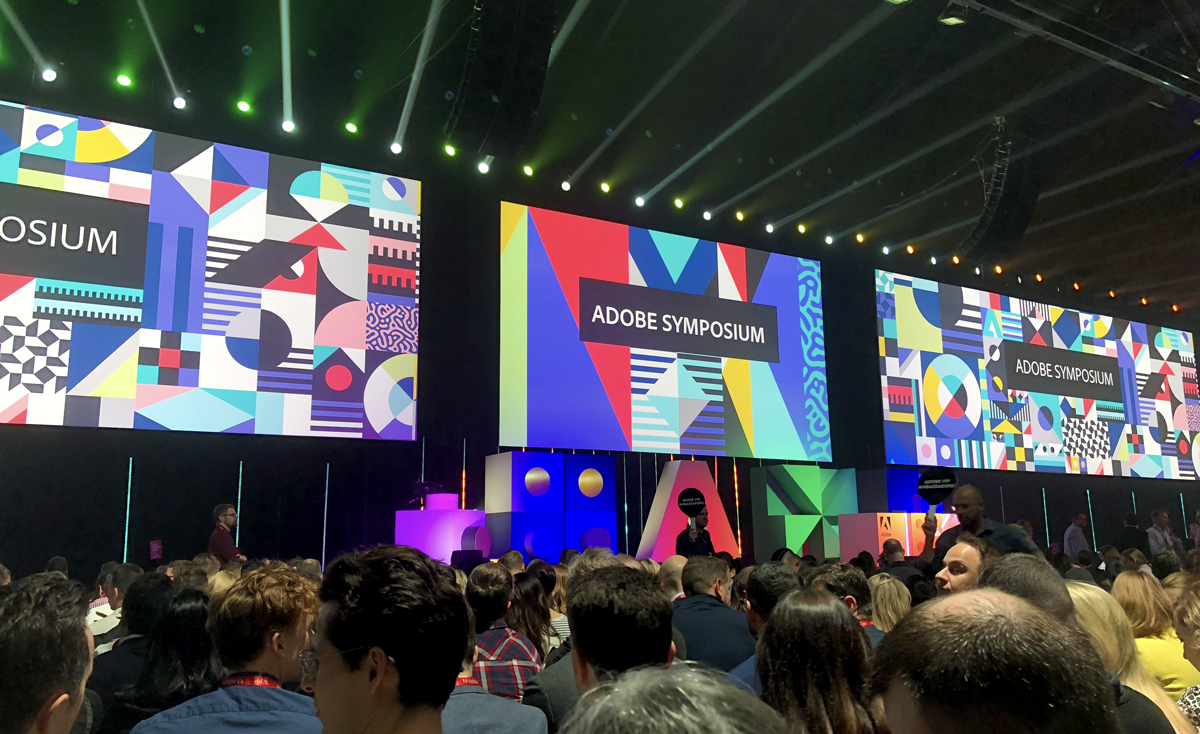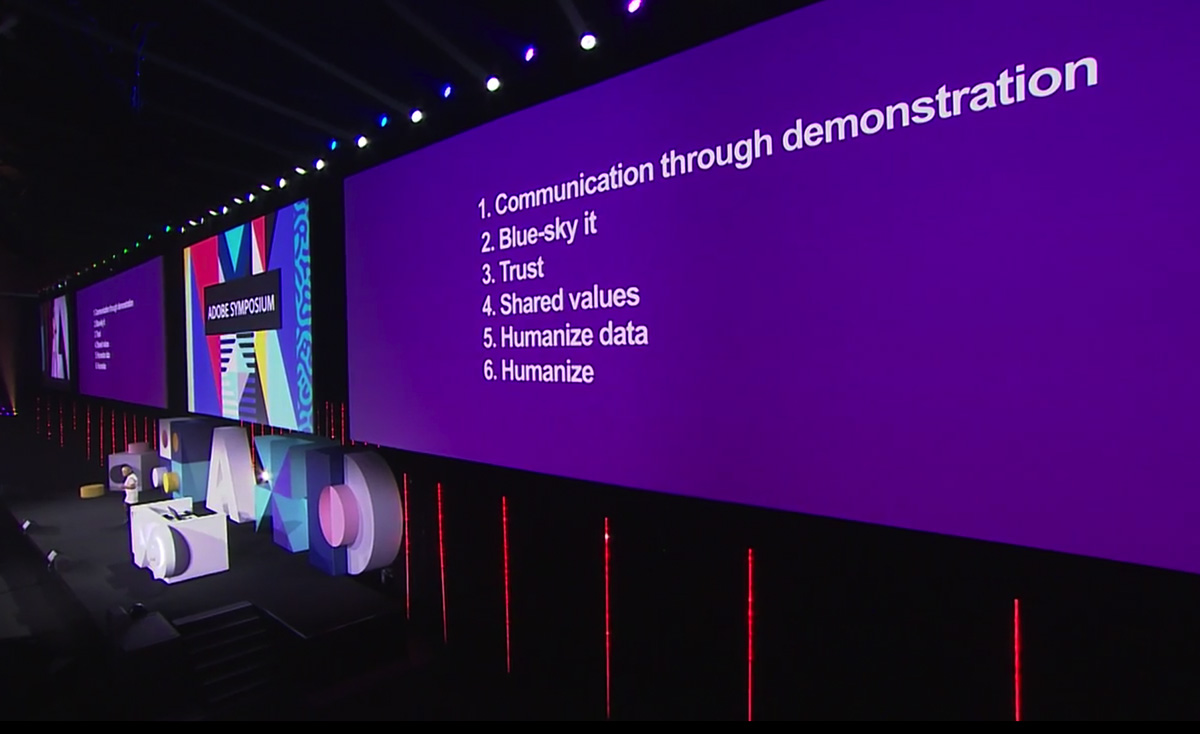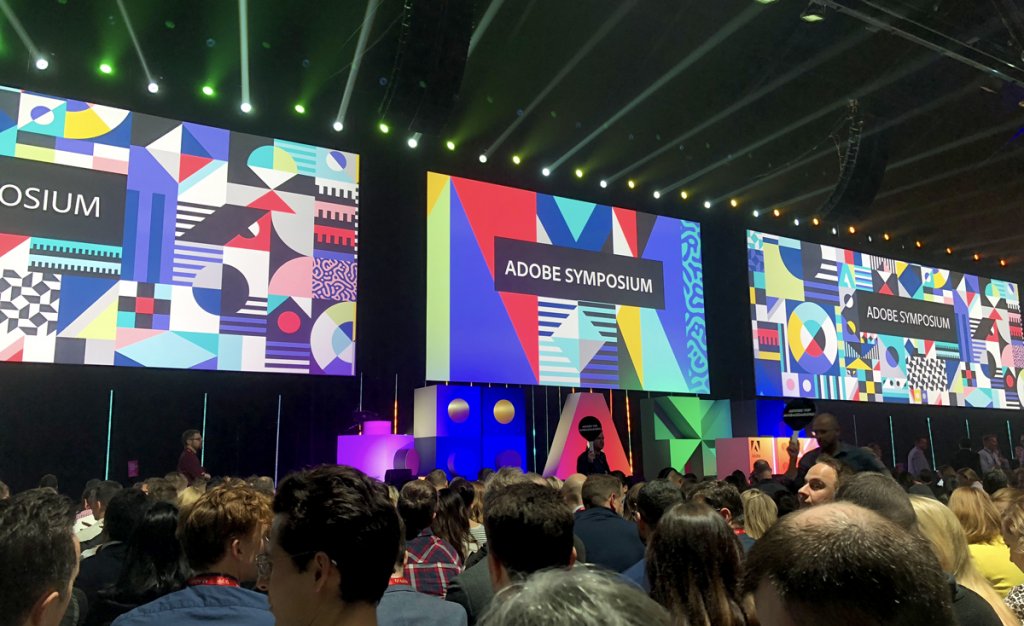4,000 attendees, 129 speakers, 2 days, 1 location, unlimited free coffee. This is my recap of the Adobe Symposium 2018.
With so much quality information to divulge, stay tuned as I take you through part 1 to part 3 of what I learnt, over the next few weeks.
Also, a huge shout out to DesignStreet for throwing me in to this experience headfirst.

Digital Experience Vision
Brad Rencher, Executive Vice President & General Manager, Digital Experience, Adobe
As a group of industry leaders, it is up to us to move the creative and innovation machine forward. We as marketing professionals make real life experiences come together right from the thought of the consumer, through digital, print and the real-life experience at the end. The more memorable we make this journey, the more business we can generate. Brad refers to this as “Make Experience Your Business”. We have lots of opportunity to move our organisations forward but if you haven’t placed experience at the top of your innovation agenda, now is the time to start thinking about it and act, especially if you want to stay in business.
In order to achieve this, there are 2 challenges; Technology and Talent. You need to have the right people to use the latest technology on hand to create the best experience possible.

Experiences that Connect
Cindy Gallop, Brand Reinvention Consultant
Cindy Gallop shares the 6 key principles for creating experiences that connect and that also create relationships in our personal and professional lives.
1. Communication through demonstration
Take this as an example; you have just met me, and I tell you “I’m hysterically funny. Trust me! As soon as I tell a joke you will be rolling around in stitches”. You would be sceptical and want to be the judge for yourself. On the other hand, if I told you a joke and you laughed, you would think that I am funny. That is communication through demonstration, or – ‘Don’t say it, be it and do it’. And when you do that…
2. Blue sky-it
When you design your experiences, go sci-fi with your thinking. Don’t just do what is possible today, project out 5-15yrs into the future. Go magical with your concepts and create the experiences of your dreams; the technology exists today, just no one is using it for that purpose yet. Ask yourself out loud “What would our consumer love to have happen? What would we love to have happen?”. If we go back 10 years, the thought of saying something out loud and that thing showing up on your doorstep an hour later would have sounded utterly fantastical. Now, we have Alexa and Amazon Prime.
3. Trust
The guaranteed formula for a successful business is as follows:
If you seek out, hire, retain and manage the very best talent;
If you then give that talent an inspirational vision of what you want them to achieve;
If you then step right back and empower that talent to achieve those goals by any means necessary as they see fit using their own individual skills;
If, at the same time, you demonstrate to that talent every day how much you value them not just through financial terms, but verbally, vocally and regularly;
And, if you enable that talent to share in the profit they helped create you will be successful. It’s simple but nobody ever does it because it involves a high trust working environment which is not very common due to the nature of corporate hierarchy. To design great experiences, you have to embed trust into the creation of that experience…
4. Shared values
When you create amazing experiences, you need to do it with shared values. The formula for the business model of the future therefore is this:
Shared values + shared action = shared profit (financial and social).
This applies not only to business but also to any relationship in life because if you don’t have shared values you can’t truly bond with that individual.
5. Humanise data
Experiences enable you to create data which is a very big topic in this day and age. But data is not statistics and numbers, data is people. If you like someone, you are more likely to share information with that individual and the more you trust each other you eventually reach the point that you think “I want you to know me”. That is how brands and companies should be humanising the collection of data. You want people to be transparent with you because they see the benefit of doing this to themselves.
6. Humanise (FULL STOP)
Diversity is a buzz word in every industry at the moment. But it’s not about diversity, it’s about humanity. All we’re talking about is reflecting the world as it really is, and this applies to your team as well. It is all about creating empathetic experiences that we can share.

